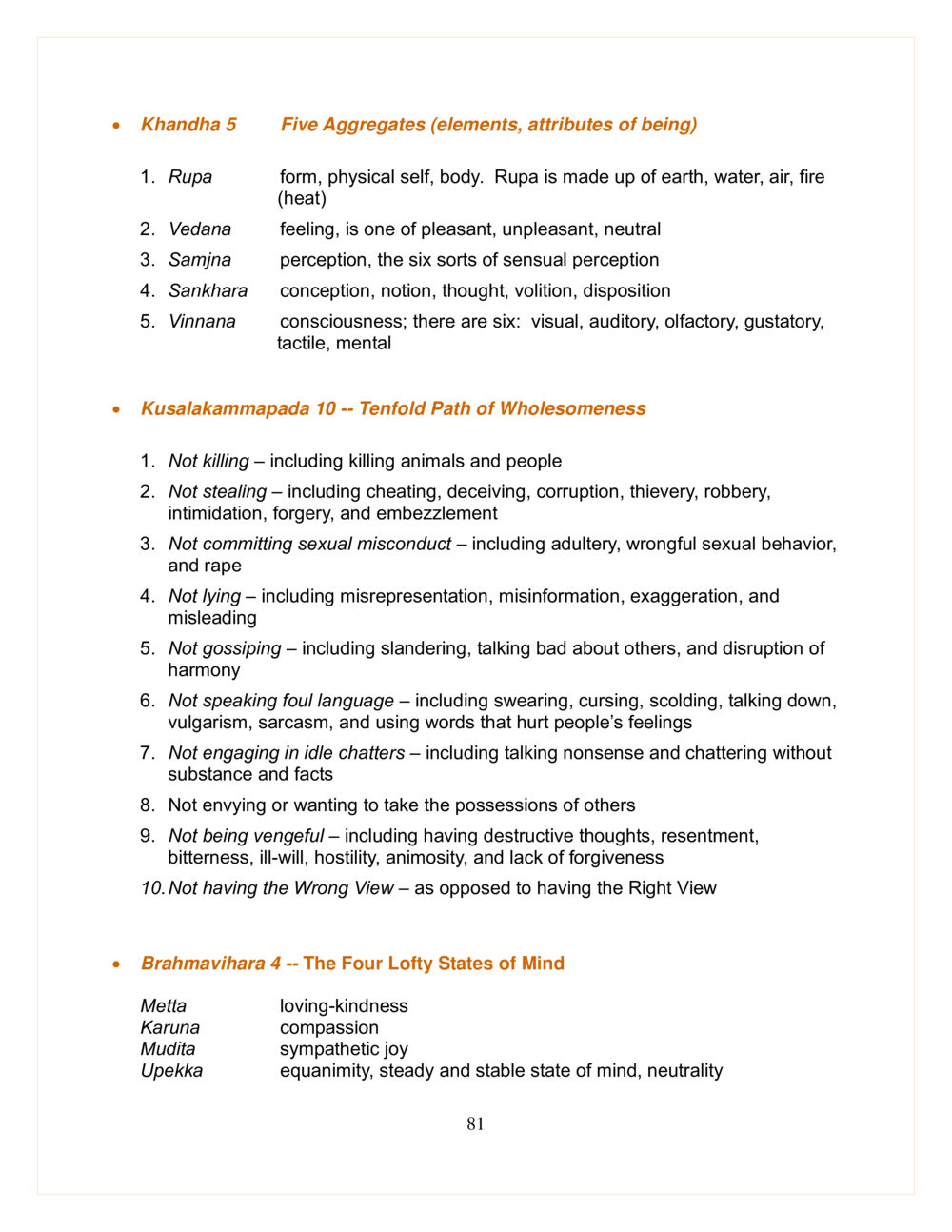Understanding the Five Aggregates, Tenfold Path of Wholesomeness, and Four Lofty States of Mind : หน้า 81/115
DMC Translor’s handbook : หน้า 81/115 Explore the elements of being with the Five Aggregates, the moral guidelines of the Tenfold Path, and the qualities of mind in the Four Lofty States.
0 ครั้ง

สรุปเนื้อหา
This text delves into three significant aspects of Buddhist philosophy: the Five Aggregates which consist of Rupa (form), Vedana (feeling), Samjna (perception), Sankhara (conception), and Vinnana (consciousness). It describes Kusalakammapada or the Tenfold Path of Wholesomeness guiding ethical behavior by promoting principles such as not killing, stealing, sexual misconduct, lying, gossiping, ill speech, idle chatter, envy, vengeance, and wrong views. Lastly, it highlights the Brahmavihara or the Four Lofty States of Mind, which are Metta (loving-kindness), Karuna (compassion), Mudita (sympathetic joy), and Upeksa (equanimity). These teachings provide a comprehensive framework for understanding the self and fostering wholesome states of mind in daily life. For further insights, visit dmc.tv.
หัวข้อประเด็น
-Five Aggregates
-Tenfold Path of Wholesomeness
-Four Lofty States of Mind
-Rupa
-Vedana
-Samjna
-Sankhara
-Vinnana
-Metta
-Karuna
-Mudita
-Upeksa



















































































































